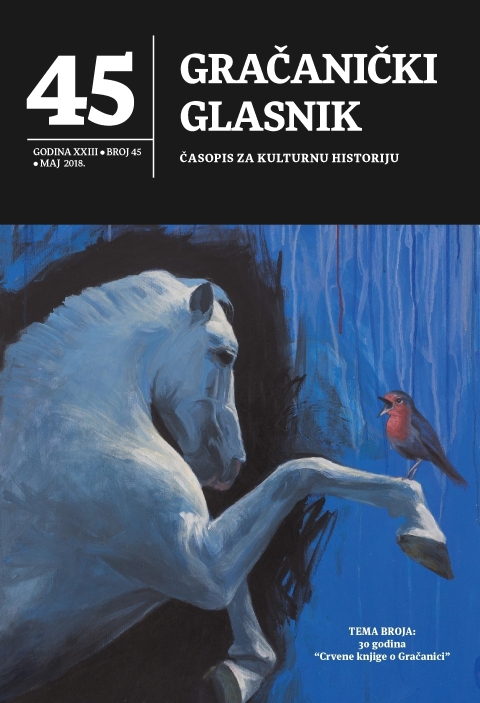Prilog usmenoj historiji gračaničkog kraja u Drugom svjetskom ratu i poratnom dobu
An addition to the oral history of the Gračanica region in World War II and the post-war era (Three recorded statements)
Author(s): Nihad HalilbegovićSubject(s): Military history, Oral history, Studies in violence and power, Victimology, Fascism, Nazism and WW II
Published by: Izdavačka kuća »Monos« d.o.o
Keywords: World War II; oral history; statements; memories; Mehmed Avdić; Mustafa Duraković; Mustafa Hasičević; Gračanica; Donja Orahovica; Malešići; Klokotnica; Dravograd; death marches; camps;prisoners of war;
Summary/Abstract: In this article the author publishes the recorded oral statements of three witnesses, that is, their memories of the time spent in World War II and the immediate post-war period. Mehmed Avdić from Donja Orahovica (born in 1924) was mobilized into the Ustashas. As a member of the 14th battalion, he headed toward the Austrian border, to Dravograd, where he fell into captivity. He testified about the separation of prisoners in a camp in Maribor, where one group was singled out for liquidation. He was conducted to Varaždin with others in the so-called „death marches“. There he was mobilized into the Partisans (Yugoslav Army), and sent to the battles against the remaining members of the losing Axis forces. Mustafa Duraković from Malešići (born in 1927) was a member of a local unit of the so-called „Zeleni Kadar“, hiding in front of the Partisan attacks. At the end of the war he started to depart while still under Ustasha units. He was captured by the Yugoslav army near Dravograd, and then in the death marches, he was conducted to Bosanski Brod, and the lead from camp to camp. From there he was released home, but he was arrested and taken to the notorious Štok prison in Tuzla, from where he was sent into forced labor. Mustafa Hasičević from Klokotnica (born in 1925) was mobilized into the 13th SS Division Handžar. The division was trained in Germany, after which he returned to Bosnia. In the autumn of 1944, his unit was sent to Hungary, where he fought against the incoming Red Army until the moment when he got seperated from the unit with several soldiers. After that, he returns to his homeland, joining a local unit of the „Zeleni Kadar“. They started to withdraw, but Mustafa's group surrendered to the Partisans somewhere around Bosanski Brod. Mustafa was enlisted into the 23rd Serbian Division, where he remained until the end of the war.
Journal: Gračanički glasnik - Časopis za kulturnu historiju
- Issue Year: 2018
- Issue No: 45
- Page Range: 93-106
- Page Count: 14
- Language: Bosnian

